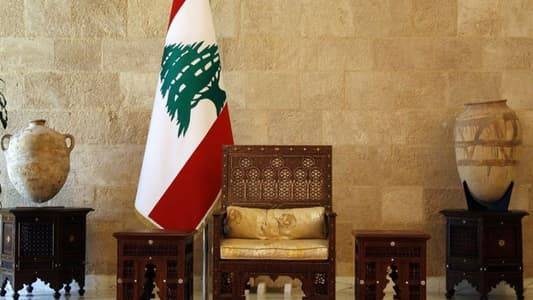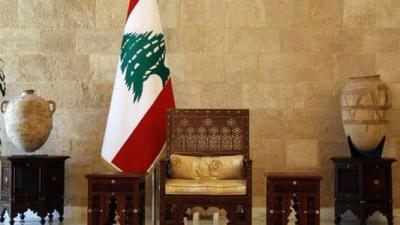It may be a coincidence, or perhaps intentional, that the participants of the quintet meeting in Paris—the United States, France, Egypt, Saudi Arabia, and Qatar—were the architects of the Doha Agreement in 2008. They each played their distinct roles during the six-month vacancy of the presidency from November 2007 to May 2008, taking turns in their responsibilities. For instance, France led the initiative by asking the Maronite Patriarch to compile a list of potential candidates for the presidency, mirroring the disappointing experience of 1988, which resulted in the same disappointment being repeated. Egypt promoted the candidacy of the army chief at the time, General Michel Suleiman, and hosted him; the United States backed the French role by supporting and encouraging the 14 March forces initially to elect a president by a simple majority. Meanwhile, Saudi Arabia engaged in a confrontation with Damascus and Hezbollah through Prime Minister Saad Hariri, and ultimately, Qatar hosted the Lebanese leaders on its territory to reach a small settlement.
At that time, the same five capitals returned to play the same roles, minus the presence of the Arab League, which had been involved previously. The resemblance of events and the presence of the same actors in the same ongoing game, combined with the presidential vacancy and the division of forces—as well as the powerful position of Hezbollah—present opportunities to revisit what happened in 2008. At that time, the efforts of this quintet continued throughout the vacancy without success due to the insistence of the Lebanese parties on their conditions, split between the 8 and 14 March teams, until they fell into the quagmire of fighting on May 7. Consequently, the quintet was able to reach a settlement through the Doha Agreement. However, they lack the actual conditions needed to save Lebanon and extricate it from its multiple crises today, which now include economic collapse and deteriorating living conditions.
The meeting of the five countries yesterday was nothing more than a revival of the early days of the 2007 vacancy and not the conclusion of its path thereafter. What the attendees in Paris still lack is reaching an explosive moment that would make the settlement viable, an outcome feared by the Lebanese parties who need to comply with it. Thus, it may be reasonable to assume that it is premature for the quintet to expect a response without a hefty price, and concluding that the first meeting in Paris resembles raising a stick against those involved may be misguided.
The belief that hopes for the Paris meeting are being diminished is reinforced by the fact that it could resemble the tripartite American-French-Saudi statement in New York on September 22, 2022, on the sidelines of the UN General Assembly session, more than a month before the end of President Michel Aoun's term, calling for the election of a president within the constitutional timeframe and reaffirming Lebanon's stability while urging structural reforms in the economy and monetary policy, which had been discussed in the earlier French-Saudi statement on July 29 in Paris. Both, in aspects of electing a president and implementing reforms towards stability, represent a natural and necessary framework for the quintet's meeting.
It is unexpected from the five capitals in Paris, much like the prior experience accompanying the Doha Agreement, that delving into presidential election specifics will occur, whether in yesterday's ambassador-level meeting or in the subsequent foreign ministers’ meeting, viewed as a supposed continuation towards the success of the first meeting. Ultimately, the five countries are regarded as directly responsible for pulling Lebanon out of its current predicaments, while the Lebanese themselves must manage their new settlement.
As for the local data preceding and accompanying the Paris meeting, officials listened to recent remarks from US Ambassador Dorothy Shea and French Ambassador Anne Griot regarding their approaches to the Lebanese presidential elections. The US ambassador stated that her instructions from her administration specified that there is no particular candidate for Washington, but rather an emphasis on electing a president, whoever that may be, chosen by the Lebanese themselves. She also indicated that Hezbollah should facilitate the launch of the presidential election mechanism by withdrawing its candidate, former MP Sleiman Frangieh. In the context of insisting on him, even through a roundabout voting process using blank ballots, there will not be an election for the presidency, nor will the course of the election sessions, which are being held in vain, be corrected. She added that she and her administration know that any president for Lebanon from the currently circulating names would not be antagonistic to the United States. Thus, they are not concerned with naming someone as much as they are with ensuring voting takes place.
The French ambassador’s statements aligned with those of her American counterpart. She revealed that President Emmanuel Macron summoned her days ago to Paris and held a two-hour meeting, during which he demonstrated that Lebanon is of concern and importance to him, emphasizing that Paris has no candidate but supports whoever is elected by the Lebanese people, whoever that may be, and that it will cooperate with him in the coming phase. She reiterated what Shea said: no president elected will be antagonistic to France.
In stark contrast to the two ambassadors, Saudi Ambassador Walid Bukhari, representing the third member of the quintet, entirely refrains from making any statements regarding the presidential election, except to encourage its holding. He does not delve into the issue, and Riyadh behaves as an onlooker until the Lebanese elect their president. After that, it will build its position based on the individual's alignment with the normalization of Saudi-Lebanese relations.




